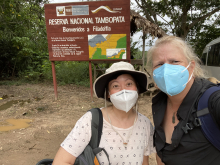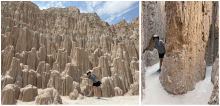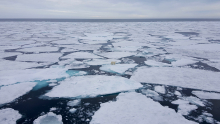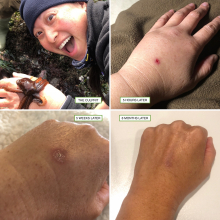Update
Expedition Update: The educator is not able to travel with the team in 2023. Any research updates will be shared.
What Are They Doing?
 Isumaqatingniq, the Inuktitut word for expressing, “thinking together” describes the process proposed for our educational collaborative to integrate knowledge frames of traditional Inuit knowledge and STEM. Inuit Qaujimajatuqangit (IQ), or Inuit knowledge literally translates in Inuktitut to mean “a way of knowing” and science are two ways of knowing the natural and physical world. Both have a useful, complimentary, and insightful methodology. Holders of IQ and scientists are learning to better understand the benefits of each knowledge frame, though seldom do they fully appreciate the discipline or practice of the other, and even less often do they actively integrate these two knowledge approaches. More importantly, future generations of children from Inuit and other First Nations groups rarely have a welcoming entre into scientific studies through their oral tradition of IQ. Similarly, students in countries adopting scientific study or STEM as part of their core curriculum, rarely get introduced to IQ or other knowledge perspectives until pursuing more advanced studies in social science. This study will bridge these systems of thought and knowledge models through educational settings, by establishing baseline content during workshops with Inuit and non-Inuit elders, hunters and experts representing both knowledge frames as they apply to the study and knowledge of the narwhal. Print and Video educational modules will be prepared as an educational adjunct for science courses directed initially for high school students and a joint presentation with representative students from each group during United Nations Indigenous Day, October 12th, 2020.
Isumaqatingniq, the Inuktitut word for expressing, “thinking together” describes the process proposed for our educational collaborative to integrate knowledge frames of traditional Inuit knowledge and STEM. Inuit Qaujimajatuqangit (IQ), or Inuit knowledge literally translates in Inuktitut to mean “a way of knowing” and science are two ways of knowing the natural and physical world. Both have a useful, complimentary, and insightful methodology. Holders of IQ and scientists are learning to better understand the benefits of each knowledge frame, though seldom do they fully appreciate the discipline or practice of the other, and even less often do they actively integrate these two knowledge approaches. More importantly, future generations of children from Inuit and other First Nations groups rarely have a welcoming entre into scientific studies through their oral tradition of IQ. Similarly, students in countries adopting scientific study or STEM as part of their core curriculum, rarely get introduced to IQ or other knowledge perspectives until pursuing more advanced studies in social science. This study will bridge these systems of thought and knowledge models through educational settings, by establishing baseline content during workshops with Inuit and non-Inuit elders, hunters and experts representing both knowledge frames as they apply to the study and knowledge of the narwhal. Print and Video educational modules will be prepared as an educational adjunct for science courses directed initially for high school students and a joint presentation with representative students from each group during United Nations Indigenous Day, October 12th, 2020.
Where Are They?
Arctic Bay is an Inuit hamlet located in the northern part of the Borden Peninsula on Baffin Island in the Qikiqtaaluk Region of Nunavut, Canada.
Latest Journals

Martin Nweeia, a Connecticut dentist and a clinical instructor at the Harvard School of Dental Medicine, has been traveling to the Arctic for fourteen years to study narwhals, and, in particular, their tusks. He’s given some scientific talks about his research over the years and published some details in book chapters. But now he and a team of colleagues from Harvard, the Smithsonian, the University of Minnesota, Fisheries and Oceans Canada, and elsewhere have published a detailed account of their studies on the narwhal tusk in the Anatomical Record.





